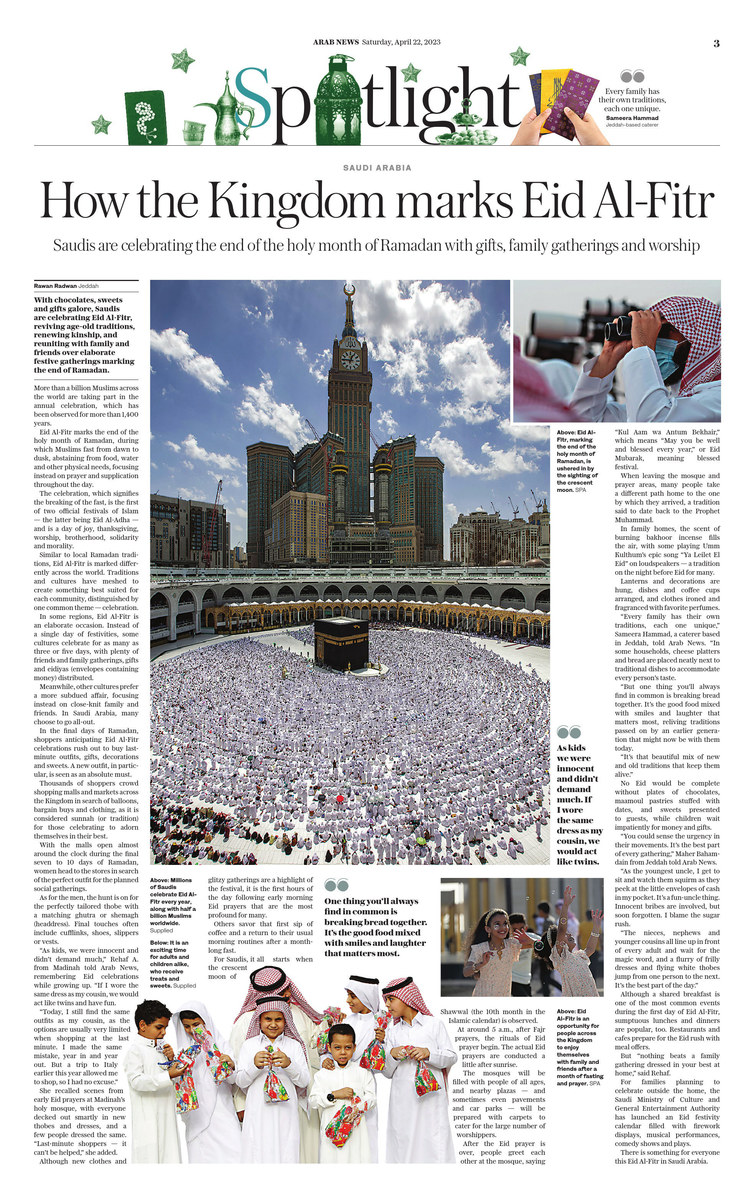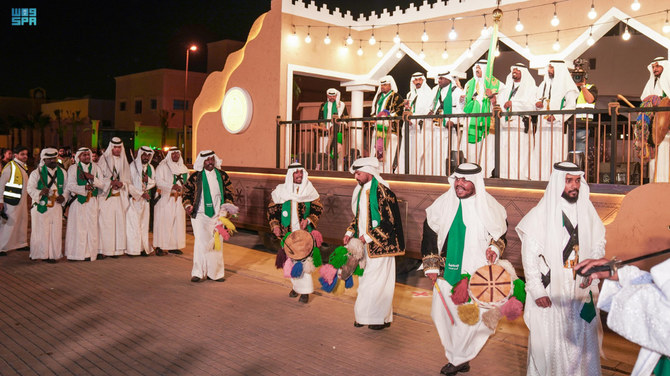JEDDAH: With chocolates, sweets and gifts galore, Saudis are celebrating Eid Al-Fitr, reviving age-old traditions, renewing kinship, and reuniting with family and friends over elaborate festive gatherings marking the end of Ramadan.
More than a billion Muslims across the world are taking part in the annual celebration, which has been observed for more than 1,400 years.
Eid Al-Fitr marks the end of the holy month of Ramadan, during which Muslims fast from dawn to dusk, abstaining from food, water and other physical needs, focusing instead on prayer and supplication throughout the day.

"Diriyah Gate" in Riyadh celebrates Eid Al-Fitr with its residents and visitors. (SPA)
The celebration, which signifies the breaking of the fast, is the first of two official festivals of Islam — the latter being Eid Al-Adha — and is a day of joy, thanksgiving, worship, brotherhood, solidarity and morality.
Similar to local Ramadan traditions, Eid Al-Fitr is marked differently across the world. Traditions and cultures have meshed to create something best suited for each community, distinguished by one common theme — celebration.
In some regions, Eid Al-Fitr is an elaborate occasion. Instead of a single day of festivities, some cultures celebrate for as many as three or five days, with plenty of friends and family gatherings, gifts and eidiyas (envelopes containing money) distributed.
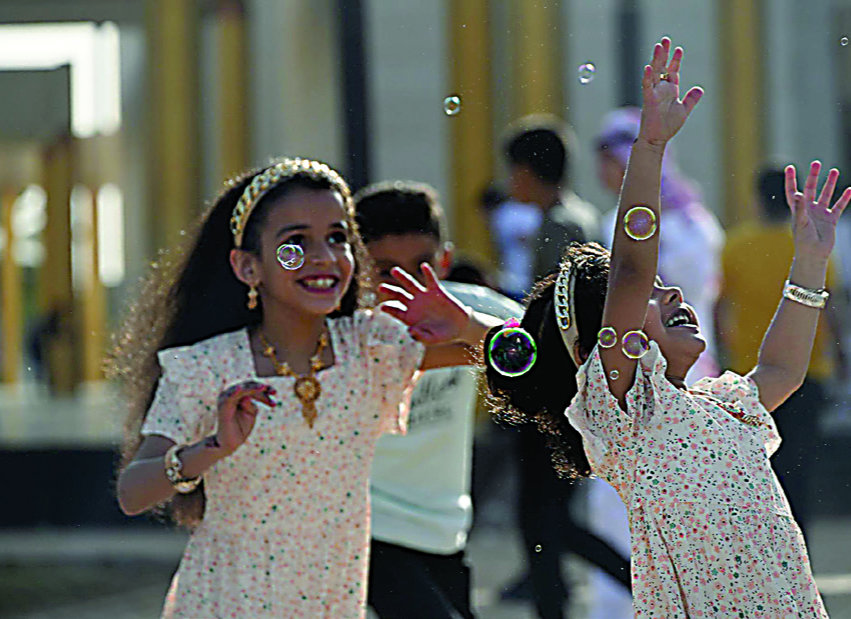
Eid Al-Fitr is an opportunity for people across the Kingdom to enjoy themselves with family and friends after a month of fasting and prayer. (SPA)
Meanwhile, other cultures prefer a more subdued affair, focusing instead on close-knit family and friends. In Saudi Arabia, many choose to go all-out.
In the final days of Ramadan, shoppers anticipating Eid Al-Fitr celebrations rush out to buy last-minute outfits, gifts, decorations and sweets. A new outfit, in particular, is seen as an absolute must.
Thousands of shoppers crowd shopping malls and markets across the Kingdom in search of balloons, bargain buys and clothing, as it is considered sunnah (or tradition) for those celebrating to adorn themselves in their best.

Eid is also a time to shop, with markets across the Kingdom giving offering bargain buys. (SPA)
With the malls open almost around the clock during the final seven to 10 days of Ramadan, women head to the stores in search of the perfect outfit for the planned social gatherings.
As for the men, the hunt is on for the perfectly tailored thobe with a matching ghutra or shemagh (headdress). Final touches often include cufflinks, shoes, slippers or vests.
“As kids, we were innocent and didn’t demand much,” Rehaf A. from Madinah told Arab News, remembering Eid celebrations while growing up. “If I wore the same dress as my cousin, we would act like twins and have fun.
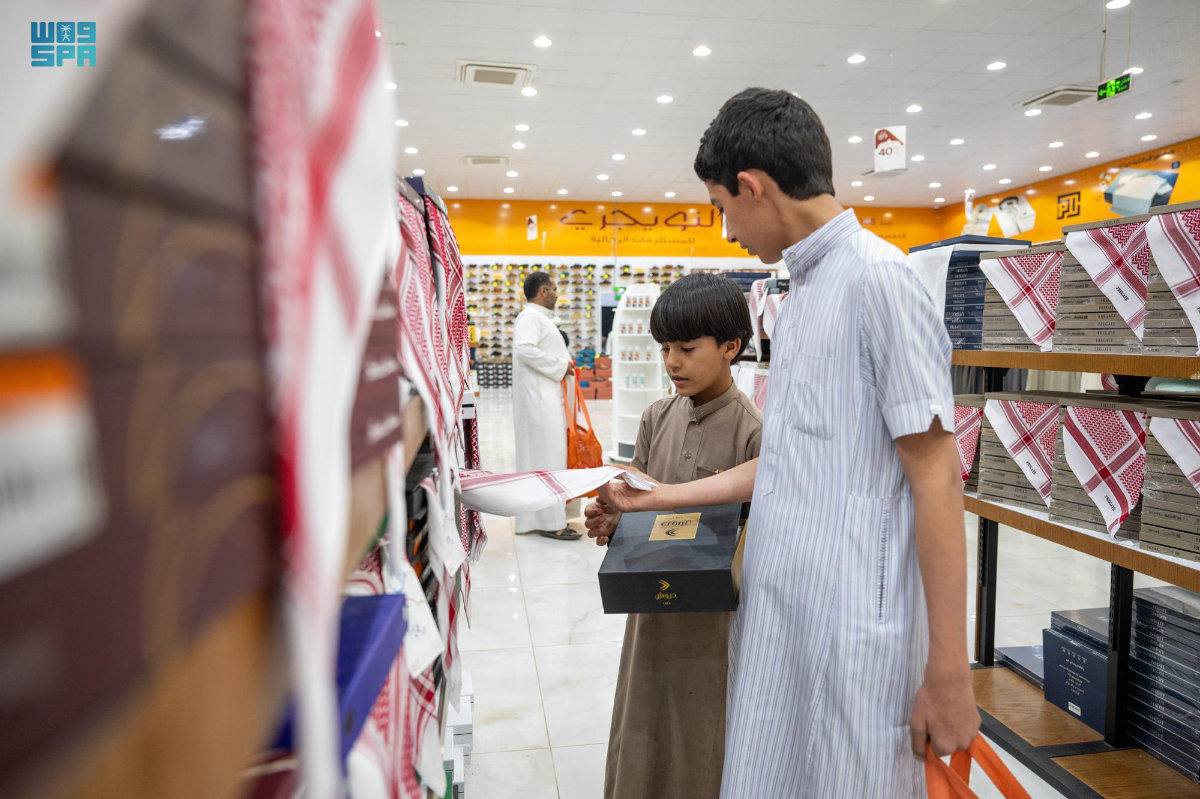
Young boys shop for new attire at a mall in Riyadh. (SPA)
“Today, I still find the same outfits as my cousin, as the options are usually very limited when shopping at the last minute. I made the same mistake, year in and year out. But a trip to Italy earlier this year allowed me to shop, so I had no excuse.”
She recalled scenes from early Eid prayers at Madinah’s holy mosque, with everyone decked out smartly in new thobes and dresses, and a few people dressed the same. “Last-minute shoppers — it can’t be helped,” she added.
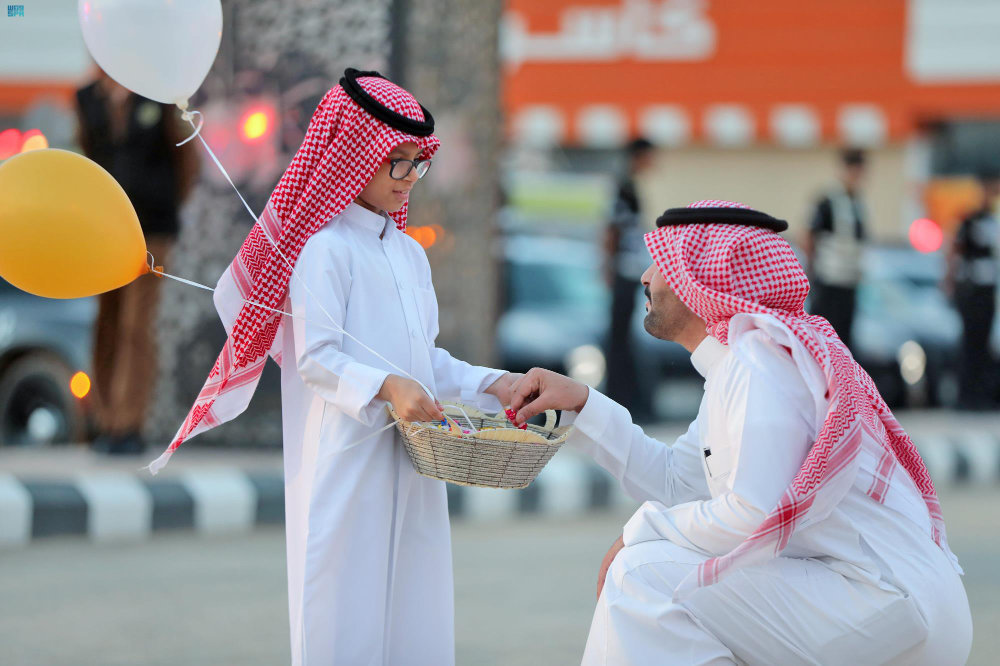
Eid is an exciting time for adults and children alike, who receive treats and sweets. (Supplied)
Although new clothes and glitzy gatherings are a highlight of the festival, it is the first hours of the day following early morning Eid prayers that are the most profound for many.
Others savor that first sip of coffee and a return to their usual morning routines after a month-long fast.
For Saudis, it all starts when the crescent moon of Shawwal (the 10th month in the Islamic calendar) is observed.
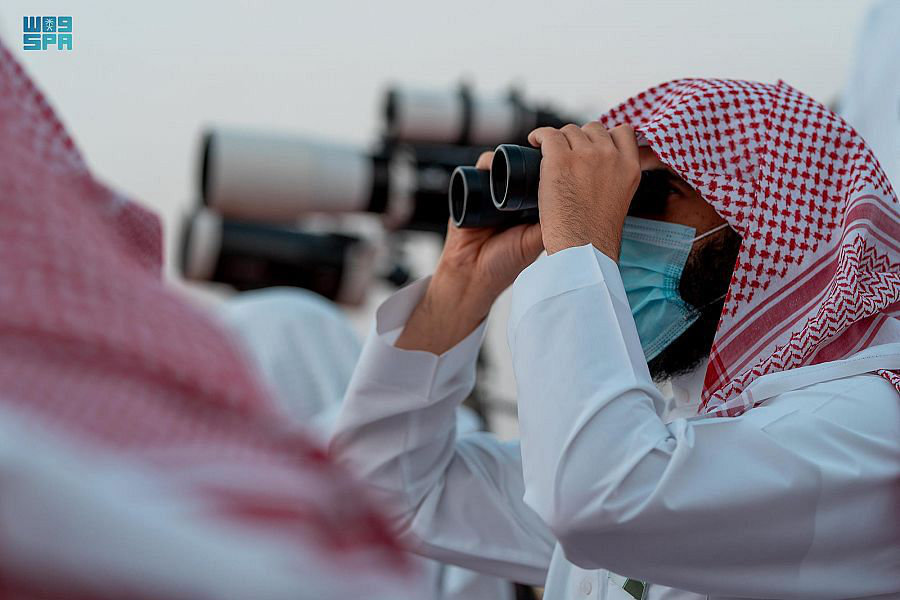
A Saudi man joins a group at an observation site on April 20, 2023, in search for the crescent moon, which would signal the start of Eid. (SPA)
At around 5 a.m., after Fajr prayers, the rituals of Eid prayer begin. The actual Eid prayers are conducted a little after sunrise.
The mosques will be filled with people of all ages, and nearby plazas — and sometimes even pavements and car parks — will be prepared with carpets to cater for the large number of worshippers.
After the Eid prayer is over, people greet each other at the mosque, saying “Kul Aam wa Antum Bekhair,” which means “May you be well and blessed every year,” or Eid Mubarak, meaning blessed festival.
When leaving the mosque and prayer areas, many people take a different path home to the one by which they arrived, a tradition said to date back to the Prophet Muhammad.
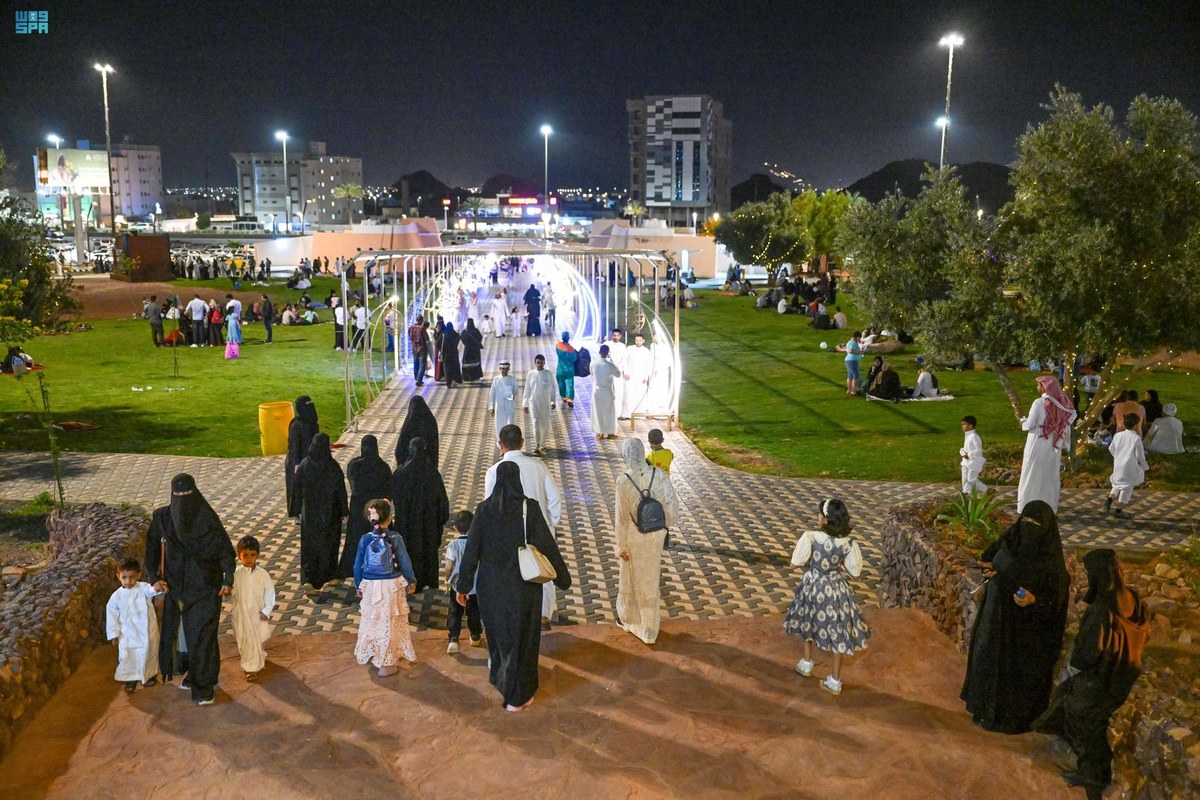
Families flock to attend Eid activities in the northern province of Hail on Friday. (SPA)
In family homes, the scent of burning bakhoor incense fills the air, with some playing Umm Kulthum’s epic song “Ya Leilet El Eid” on loudspeakers — a tradition on the night before Eid for many.
Lanterns and decorations are hung, dishes and coffee cups arranged, and clothes ironed and fragranced with favorite perfumes.
“Every family has their own traditions, each one unique,” Sameera Hammad, a caterer based in Jeddah, told Arab News. “In some households, cheese platters and bread are placed neatly next to traditional dishes to accommodate every person’s taste.
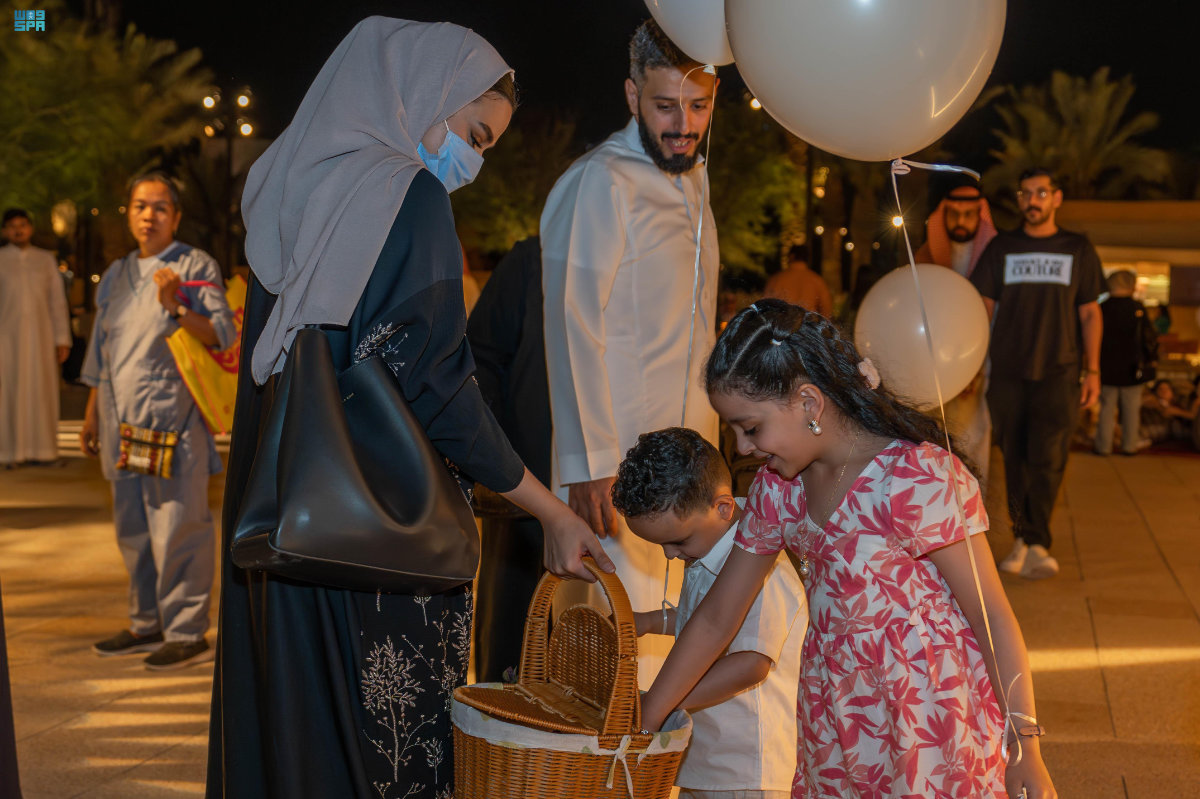
Eid is an exciting time for adults and children alike, who receive treats and sweets. (SPA)
“But one thing you’ll always find in common is breaking bread together. It’s the good food mixed with smiles and laughter that matters most, reliving traditions passed on by an earlier generation that might now be with them today.
“It’s that beautiful mix of new and old traditions that keep them alive.”
No Eid would be complete without plates of chocolates, maamoul pastries stuffed with dates, and sweets presented to guests, while children wait impatiently for money and gifts.
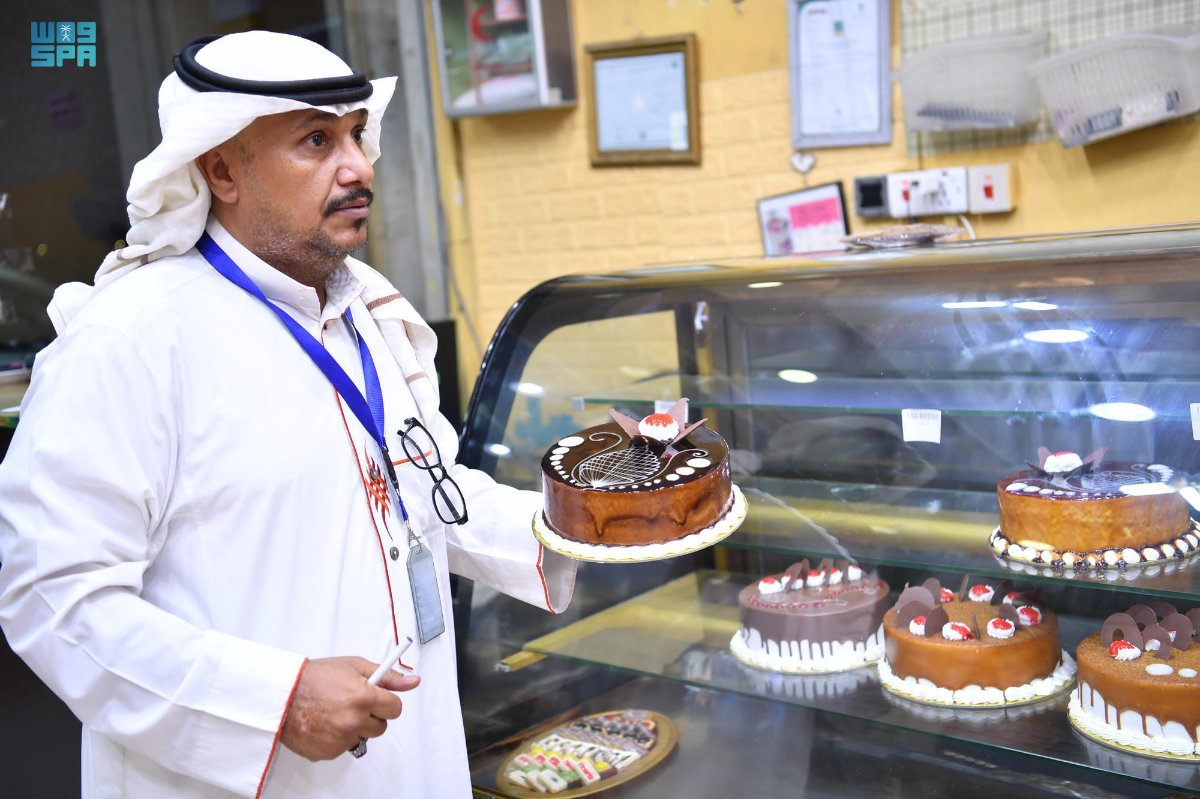
To many Saudis, no Eid would be complete without chocolates, maamoul pastries stuffed with dates, and sweets. (SPA)
“You could sense the urgency in their movements. It’s the best part of every gathering,” Maher Bahamdain from Jeddah told Arab News.
“As the youngest uncle, I get to sit and watch them squirm as they peek at the little envelopes of cash in my pocket. It’s a fun-uncle thing. Innocent bribes are involved, but soon forgotten. I blame the sugar rush.
“The nieces, nephews and younger cousins all line up in front of every adult and wait for the magic word, and a flurry of frilly dresses and flying white thobes jump from one person to the next. It’s the best part of the day.”
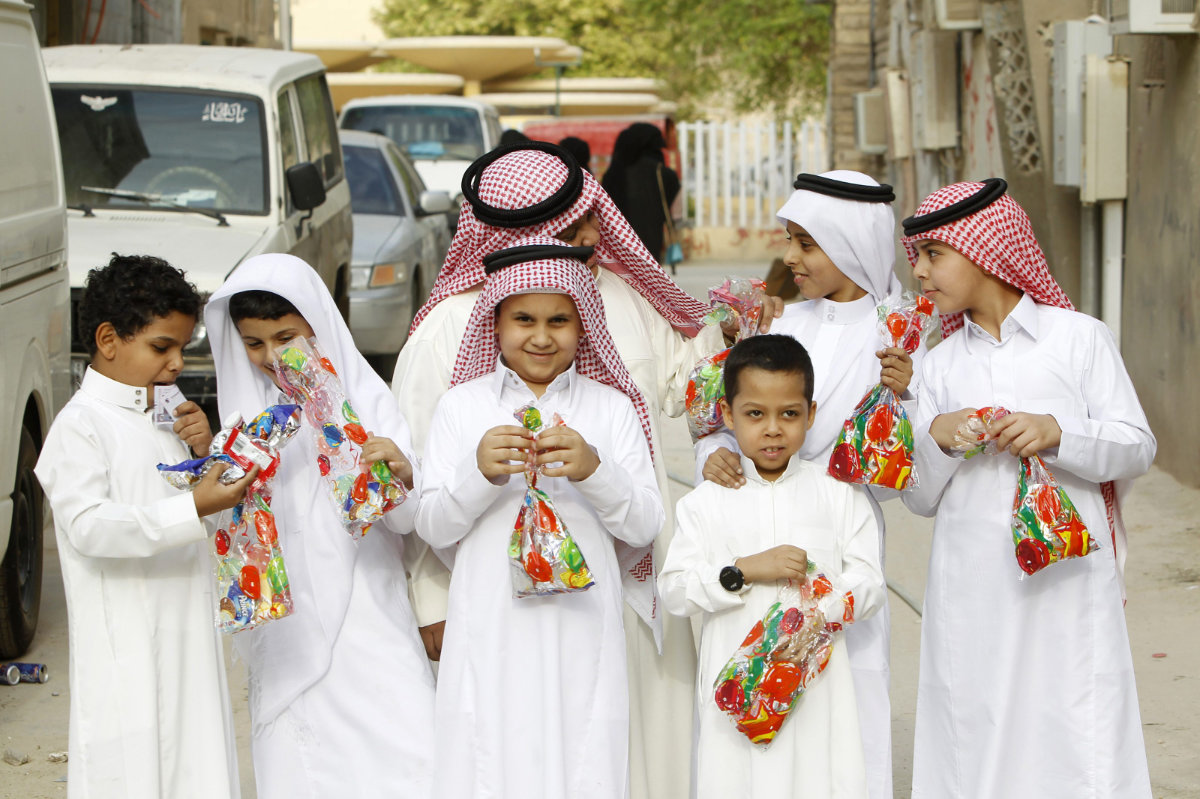
Eid is an exciting time for adults and children alike, who receive treats and sweets. (Supplied)
Although a shared breakfast is one of the most common events during the first day of Eid Al-Fitr, sumptuous lunches and dinners are popular, too. Restaurants and cafes prepare for the Eid rush with meal offers.
But “nothing beats a family gathering dressed in your best at home,” said Rehaf.
For families planning to celebrate outside the home, the Saudi Ministry of Culture and General Entertainment Authority has launched an Eid festivity calendar filled with firework displays, musical performances, comedy shows and plays.
There is something for everyone this Eid Al-Fitr in Saudi Arabia.
